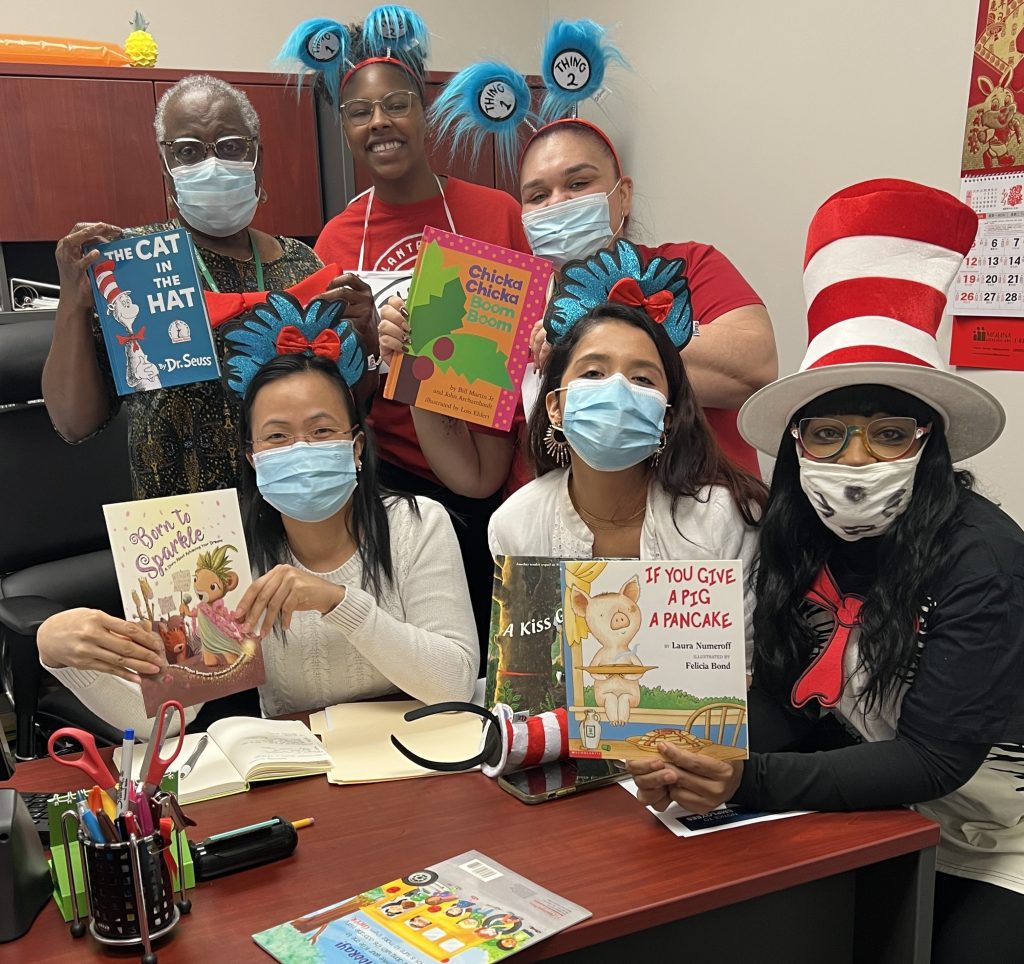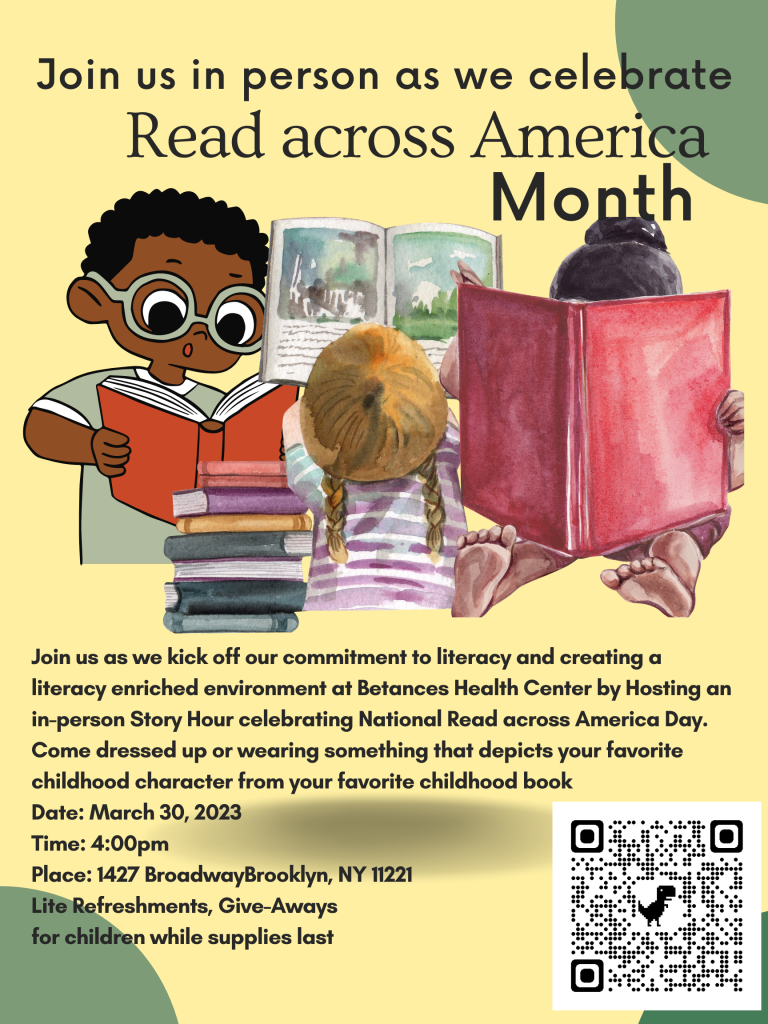grantee spotlight
UHF Literacy Project Helps Health Center Achieve Longtime Dream
Three Decades in the Making: UHF Literacy Project Helps Health Center Achieve Longtime Dream
Betances Health Center director of marketing Tina Horton saw the need for a pediatric literacy project at her clinic when she started working there nearly three decades ago.
Made up of culturally diverse and medically underserved residents in the Lower East Side and Bushwick, patients at Betances’ two locations include children with very low literacy rates and parents who themselves struggle with reading or English language skills. Research shows that early literacy can influence not only a child’s school outcomes, but also their long-term economic stability, health, housing, and social opportunities.
But despite Horton’s best efforts, a lack of financial resources kept any concerted literacy effort on the back burner for 29 years.

“We see the need. We know the need is there … [But] the biggest thing was, where will we get the books? Books are expensive,” Horton said.
That all changed last year when United Hospital Fund (UHF) launched its inaugural early childhood literacy project, “Pediatric Steps to Literacy, One Book at a Time.”
Betances became one of four pediatric practices to participate in the UHF project, finally receiving the funding and resources to kick off a literacy effort. The one-year project provided the clinic with guidance, resource connections, and $7,500 to fully integrate early literacy practices into their primary care space.
“That made all the world of difference,” Horton said. “We had this opportunity, and we had this … funding—that was half the battle for me.”
With UHF support, Betances began setting up monthly literacy workshops and was able to purchase materials to create a friendly literacy-rich environment in its waiting room and exam rooms.
The literacy workshops—including five virtual events and the first in-person session in March—included read-aloud sessions for children and, importantly, a chance for staff to educate caregivers about how to continue literacy practices at home.
One of Horton’s first inspirations for starting a literacy project at Betances was watching children serve as translators or readers for their parents when visiting the clinic, she said. Using what’s known as a two-generation approach, the UHF literacy project further emphasized for Horton the need for literacy activities that involve the whole family. This approach has been shown to produce better outcomes for both children and parents’ reading skills and confidence.
“Especially participating in this project, I realized the parents need the help as well,” Horton said. “They have to be partners with us in this, so we need to give them the tools that they need to be comfortable to do that.”

As its literacy workshops gain more attendees, Betances hopes to add an adult literacy portion, Horton said. She’s also working on a partnership with a local daycare and Women, Infants and Children Program location for future events.
The literacy-friendly environment at Betances will also continue to grow. Initially delayed due to construction at the clinic , Betances will soon set up bookshelves in its waiting area and have a local college student paint alphabet-themed murals in the exam rooms. The artwork will also be used to create flashcards children can take home.
The additions will ensure Horton’s 29-year dream will extend long beyond the one-year UHF project. Through UHF informational and project collaborative sessions, Horton said she has discovered new cost-friendly options for buying books and other resources that will help sustain the literacy efforts for the long term.
“I’m confident that now that it’s started, it will continue,” she said.
UHF’s inaugural literacy project included partnerships with four pediatric primary care practices serving neighborhoods with high rates of families experiencing homelessness, medically underserved immigrant families, and low or inadequate literacy rates. The project, funded by the Mother Cabrini Health Foundation, recently received funding to run another year in 2023. It will partner with five pediatric facilities this year.
To read the original story, and to learn more about United Hospital Fund, click here.
